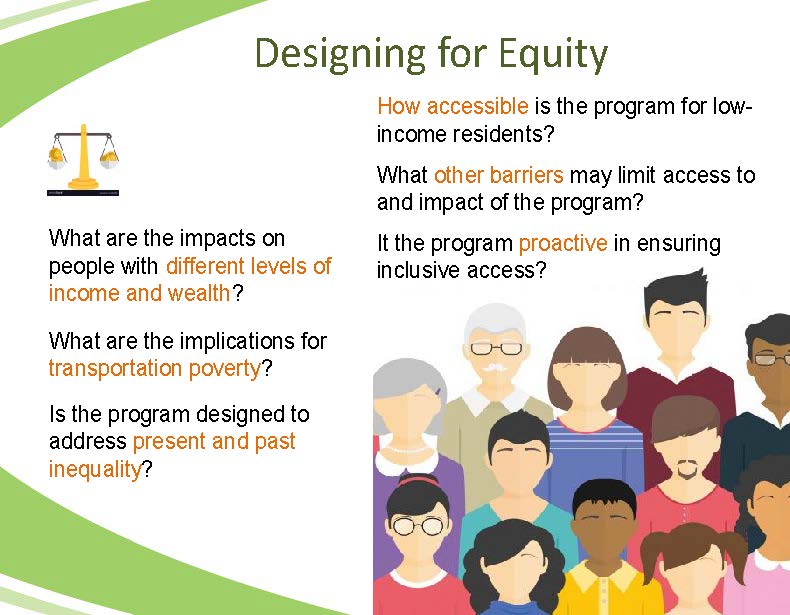There are many good reasons for local governments to enable and encourage electric bike adoption that extend well beyond the climate. Certainly supporting residents and businesses to move a significant number of kilometres travelled away from internal combustion vehicles to active forms is key to meeting emission reductions targets. But local governments and residents alike stand to capture many health, economic and well-being co-benefits of increased e-bike ridership.
That’s why we were thrilled to host a session to learn how two BC local governments leveraged local momentum and key partnerships to meet the unique needs of their communities and accelerate e-bike adoption for the climate and equity.
The session is summarized below, with a variety of resourced generously made available by webinar speakers.
UPDATE: April 2024
Researchers from UBC's Research on Active Transportation Lab, who presented at the original 2021 webinar, completed a study and found that the rebate program significantly reduced car travel and carbon emissions. In April 2024, CEA hosted a follow up webinar to showcase results and learnings of the incentive program.
Part 1
Dr. Alex Bigazzi, Associate Professor at The University of British Columbia’s Deptartment of Civil Engineering and School of Community and Regional Planning
 Dr. Bigazzi grounded the presentation in recent research stemming from his work with react lab (research on active transportation: https://reactlab.civil.ubc.ca/). E-bikes are becoming more popular, have numerous co-benefits and are a critical solution to divert motor vehicle trips. And while purchase incentives address a key barrier to e-bike adoption – cost – no robust program evaluations exist. Dr. Bigazzi is supporting the work of CSPC and the District of Saanich by evaluating the impact of e-bike incentives, and quantifying GHG and other impacts. The research of react lab can help municipalities determine how to use resources more effectively to design programs that result in e-bike use substituting car use.
Dr. Bigazzi grounded the presentation in recent research stemming from his work with react lab (research on active transportation: https://reactlab.civil.ubc.ca/). E-bikes are becoming more popular, have numerous co-benefits and are a critical solution to divert motor vehicle trips. And while purchase incentives address a key barrier to e-bike adoption – cost – no robust program evaluations exist. Dr. Bigazzi is supporting the work of CSPC and the District of Saanich by evaluating the impact of e-bike incentives, and quantifying GHG and other impacts. The research of react lab can help municipalities determine how to use resources more effectively to design programs that result in e-bike use substituting car use.
If you have questions or wish to contact Dr. Bigazzi to learn more about the research, he can be reached at: alex.bigazzi@ubc.ca
Dr. Bigazzi also graciously gathered the research articles mentioned in his presentation into one convenient location: https://reactlab.civil.ubc.ca/publications/e-bike-incentive-webinar-refs
Part 2
Diana Gibson, Executive Director, Community Social Planning Council (CSPC) of Greater Victoria
The CSPC has been working with the District of Saanich to design and monitor the E-Bike Incentive Program and test their “Transportation ACES (Access Climate and Economic Security)” framework (https://communitycouncil.ca/taces/). The TACES framework prioritizes equitable program design, climate impacts and monitoring tools. A key component of designing this program to have the best climate, accessibility and affordability outcomes is their approach to community engagement.
Learn more about CSPC: communitycouncil.ca and the TACES program: https://communitycouncil.ca/taces/
Part 3
Glenys Verhulst, Sustainability Planner, District of Saanich
 Glenys provided a thorough overview of the Saanich E-Bike Incentive Pilot Program. Context was provided on the policy, planning and research that informed the program and the foundational component of equity and GHG reductions. The pilot program itself is detailed, including design, funding sources, budget and recommendations for other communities.
Glenys provided a thorough overview of the Saanich E-Bike Incentive Pilot Program. Context was provided on the policy, planning and research that informed the program and the foundational component of equity and GHG reductions. The pilot program itself is detailed, including design, funding sources, budget and recommendations for other communities.
Complimentary resources:
Saanich Feasibility Study (this document is not intended for distribution as it is not an official plan or strategy. But the study helped District staff organize the background work to design the program, and the hope is the findings may expedite e-bike programs in other communities)
Saanich Community E-bike Pilot Program webpage: https://www.saanich.ca/ebike
Equity and Climate Resources for Local Government Staff:
Urban Sustainability Directors Network Equity Foundations Course: https://www.usdn.org/equity-foundations-training.html
Canadian Urban Sustainability Practitioners Equity in Climate Program resources: https://cuspnetwork.ca/wp-content/uploads/2021/04/Cadmus-USDN-Equitable-Clean-Energy-Guidebook.pdf
Part 4
Carmen Proctor, Climate & Energy Manager, City of Nelson
 The City of Nelson’s e-bike program is distinct from the District of Saanich in that it is a financing model, rather than an incentive. The Nelson E-Bike Financing Program is linked to the City’s Climate Action Goals, and provide low interest financing, up to $8,000 for the purchase of an e-bike. Financing is through Nelson Hydro and since 2020 over 100 applications have been received and 60 loans dispersed.
The City of Nelson’s e-bike program is distinct from the District of Saanich in that it is a financing model, rather than an incentive. The Nelson E-Bike Financing Program is linked to the City’s Climate Action Goals, and provide low interest financing, up to $8,000 for the purchase of an e-bike. Financing is through Nelson Hydro and since 2020 over 100 applications have been received and 60 loans dispersed.
Learn more: http://www.nelson.ca/824/E-Bike-Program
Other e-bike programs
The Clean BC Specialty Use Vehicle Incentive Program (SUVI) provides incentives for BC based businesses, local governments, and non-profits to purchase electric cargo bikes.

